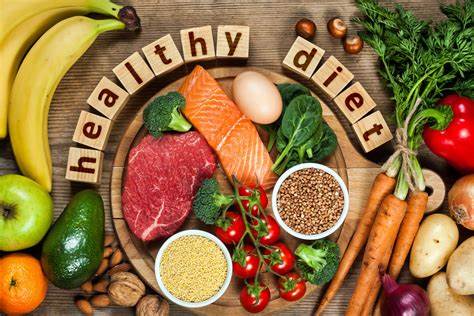In a world overflowing with dietary advice and nutrition trends, it’s easy to get confused about what’s true and what’s not. Many Australians are bombarded with information about diets, superfoods, and health fads, leading to common misconceptions about nutrition. Let’s debunk some of these myths to help you make informed choices about your diet.
Myth 1: Carbs Are the Enemy
One of the most prevalent myths is that all carbohydrates are bad for you. Many people believe that cutting carbs will lead to weight loss and better health. However, not all carbs are created equal.
The Truth:
Complex carbohydrates, such as whole grains, legumes, fruits, and vegetables, are essential for a balanced diet. They provide vital nutrients and energy for your body. It’s the refined carbohydrates—like sugary snacks and white bread—that should be limited.
Tip:
Focus on incorporating whole foods into your diet. Choose brown rice over white rice, and opt for whole-grain bread instead of white.
Myth 2: Eating Fat Makes You Fat
For years, dietary fat has been demonised, leading many to believe that eating fat will automatically lead to weight gain.
The Truth:
Healthy fats, such as those found in avocados, nuts, seeds, and olive oil, are crucial for maintaining good health. They support brain function, hormone production, and the absorption of fat-soluble vitamins. Moderation is key, not elimination.
Myth 3: You Need to Detox Your Body
Many detox diets promise quick fixes for weight loss and improved health, often featuring juice cleanses or restrictive eating plans.
The Truth:
Your body is equipped with its own detoxification system, primarily the liver and kidneys. Instead of relying on fad detox diets, focus on a balanced diet rich in fruits, vegetables, whole grains, and adequate hydration to support your body’s natural processes.
Tip:
Incorporate liver-friendly foods, such as leafy greens and beetroot, into your meals to support your body’s detoxification naturally.
Myth 4: All Processed Foods Are Bad
The term “processed food” often carries a negative connotation, leading many to believe that all processed foods should be avoided.
The Truth:
While some processed foods can be unhealthy, many are fortified with nutrients and can be part of a balanced diet. For example, frozen fruits and vegetables retain their nutrients and are convenient options. The key is to read labels and choose options with minimal added sugars and unhealthy fats.
Tip:
Opt for minimally processed foods and check ingredient lists for hidden additives.
Myth 5: Skipping Meals Helps You Lose Weight
Many believe that skipping meals, particularly breakfast, is an effective way to lose weight by reducing calorie intake.
The Truth:
Skipping meals can lead to overeating later in the day and can disrupt your metabolism. Regular meals help maintain steady energy levels and prevent excessive hunger.
Myth 6: Gluten-Free Means Healthier
The gluten-free diet has gained popularity, leading many to believe that gluten-free foods are inherently healthier.
The Truth:
While gluten is a concern for those with celiac disease or gluten intolerance, gluten-free products can often be just as high in calories, sugars, and unhealthy fats as their gluten-containing counterparts. Focus on whole, naturally gluten-free foods like fruits, vegetables, and lean proteins.
Tip:
Always check nutrition labels, regardless of whether a product is gluten-free.
Myth 7: All Sugar Is Bad
Sugar has faced intense scrutiny, leading many to believe that any sugar intake is detrimental to health.
The Truth:
While added sugars in processed foods should be limited, naturally occurring sugars found in fruits and dairy come with important nutrients. The key is to focus on moderation and choose whole foods over processed snacks.
Myth 8: You Can Get All Your Nutrients from Food Alone
While a balanced diet is vital, many people believe they can get all necessary nutrients from food without supplements.
The Truth:
Depending on lifestyle factors and dietary choices, some individuals may require supplements to meet their nutritional needs. For example, those following a vegetarian or vegan diet may need additional Vitamin B12.
Conclusion
Navigating the world of nutrition can be challenging, but understanding these common myths can empower you to make healthier choices. Embrace a balanced diet that includes a variety of whole foods, and remember that moderation is key.
By debunking these misconceptions, you can approach your dietary habits with confidence and clarity.







